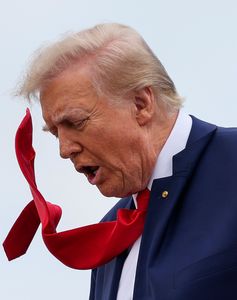For the last 80 years, the most enduring assumption of the global system was the “rules-based liberal international order”. This was supposed to be the agreed system that underpinned the world, and of which then United Nations was the carapace. Amongst its precepts was a set of rules that all governments were expected to adhere to, among them respect for the sovereignty of states; acceptance of the inviolability of international borders; and abjuring the use of force to settle disputes with other countries. These rules, encoded in the UN Charter, were largely upheld by all states, in their own interests and in the collective interests of humanity.
Recent years have, however, called the rules-based liberal international order into question. The consensus behind these precepts was violated first by terrorist groups and rebel movements, then by states themselves. State sovereignty made little sense when the authority of so many governments was contested from within and rebel movements engulfed many countries, convulsing Somalia, Iraq, Libya, Yemen, Afghanistan and Syria. Then Russia invaded Ukraine in complete disregard of these principles and for the UN charter which embodied them. Now comes the latest development to shred the rules-based liberal international order: the ascent of a man with scant respect for any of its cardinal virtues or assumptions to the leadership of the most powerful government in the world, the United States.
If President Donald Trump had the slightest regard for global niceties, his initial words and actions since his assumption of office show no signs of it. Both before and after his inauguration on January 20, Trump has threatened to reassume control over the Panama Canal (which the US had built but then handed over to Panama by treaty a half-century ago), acquire Greenland (which is a Danish territory and has been since 1721), wipe out drug cartels in Mexico (which smuggle drugs into America but are located in another sovereign country), convert Canada into the US’s 51st state by annexing it (and even referring to the country’s prime minister as its governor!), and even taking over the Gaza Strip, displacing its original Palestinian residents and refashioning it into “the Riviera of the Middle East”. He launched a peace initiative over Ukraine with the Russians—without involving Ukraine itself or even consulting the European nations on whose continent the war is being fought and who have been, along with the US, the principal backers, financiers and military suppliers of the Ukrainian forces.
If that were not enough, Trump has also withdrawn the US from the Paris climate accord, and decided his government will exit from the World Health Organisation, the UN Human Rights Commission, and the UN Relief and Works Agency for Palestinian refugees. Before completing a month in office, he slapped 25 per cent tariffs on Canada and Mexico and then suspended them for a month, threatened China with 60 per cent tariffs but then applied 10 per cent, and imposed 25 per cent on imports of steel and aluminium from anywhere. For good measure, he also imposed sanctions on the International Criminal Court for its investigations of, and cases against, Israeli leaders, especially Benjamin Netanyahu, for their actions in Gaza, which had led the ICC to issue an arrest warrant against the Israeli premier.
Trump’s actions have been characterised by extreme unpredictability and a disregard for the conventional norms of global politics. They have divided observers and commentators into two broad camps: those who are convinced the man is impulsive and geopolitically illiterate, and that most of his actions cannot be understood rationally, versus those who believe there is a method to his madness. The latter tend to view his pronouncements and decisions as reflecting the “madman theory” of President Richard Nixon, who was said to have sought to convey the impression that he was irrational and volatile so that his adversaries in the Cold War would hesitate to challenge the US, for fear of provoking an extreme response from Washington. The theory is disputed by many, as is its application to Trump; but there is no doubt that the volatility of the Trump administration has caught the rest of the world off guard and engendered considerable uncertainty in world affairs.
The only thing that is clear is that in Trump’s world, there are no rules anymore, and the prospects for both “liberalism” and “order” are not what they were two months ago.
editor@theweek.in


